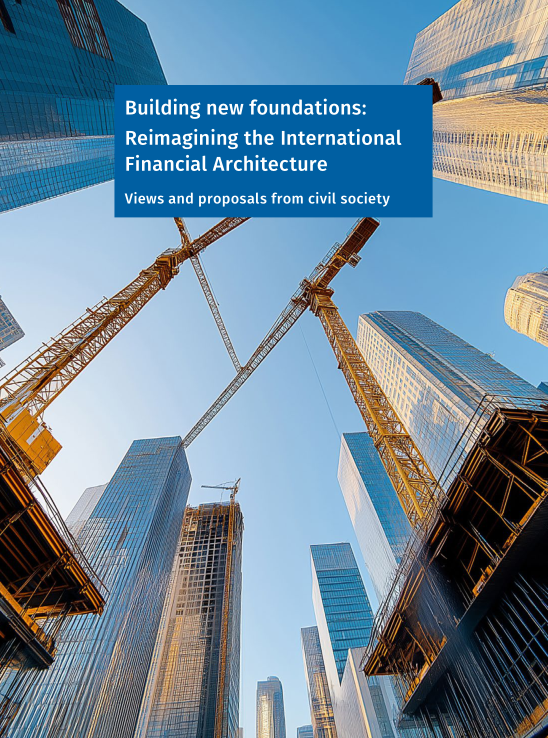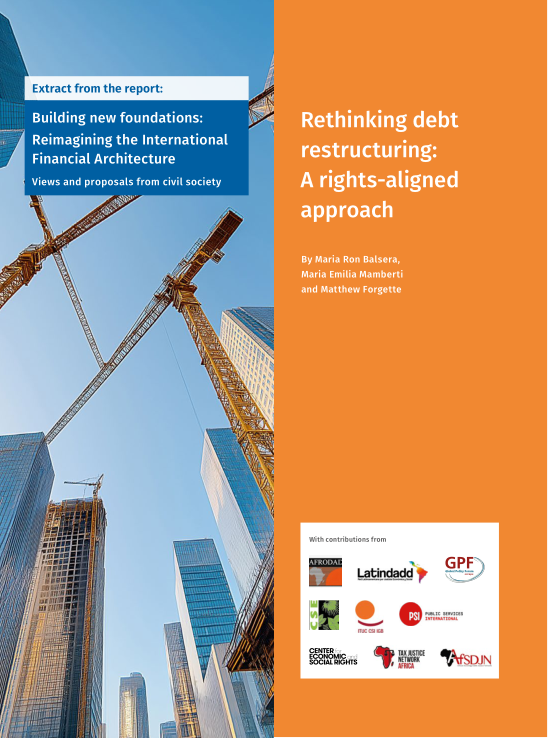
The international financial architecture is outdated, unjust, and incapable of addressing today’s crises or financing sustainable development. Our chapter in "Building New Foundations: Reimagining the International Financial Architecture" offers a bold, rights-based vision for debt restructuring as a pathway toward fairer, more effective global financial institutions.
CESR is pushing for fundamental reform of the international financial architecture as an essential foundation for a rights-based economy. As part of this effort, we contributed to a Global Policy Forum report that identifies the deep flaws in current multilateral structures and practices and offers practical proposals for reforming these policies and institutions.
Our chapter focuses on transforming debt restructuring to be truly rights-centered, addressing a debt crisis that has disproportionately harmed developing countries and entrenched inequality. It argues for a comprehensive overhaul of global debt restructuring practices that routinely force states into repeated default cycles, worsening poverty and inequality.
We propose embedding principles of transparency, good faith, and sustainability into an independent debt restructuring mechanism under the United Nations. This would ensure that debt negotiations prioritize human rights and essential social investments over debt servicing. A statutory framework that codifies these principles and requires equal participation from all creditors would be vital to ending exploitative practices like those of vulture funds.
Linking debt restructuring to broader issues of fiscal justice, our chapter also advocates for progressive taxation and an end to tax abuses that drain resources from critical public spending. Reforming the debt system means fundamentally rethinking global financial policies to align with human rights standards, paving the way for a financial architecture that is equitable, just, and sustainable. For a deeper dive into our analysis and proposals, read the full chapter below.

